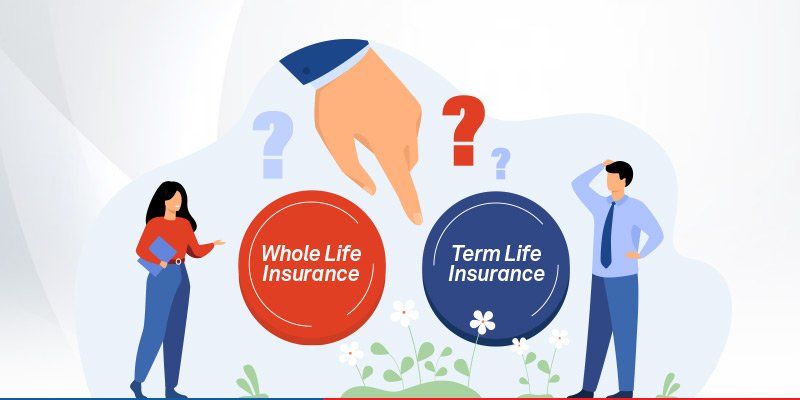When considering life insurance options in Florida, many people wonder if a whole life insurance policy will offer more than just peace of mind. The golden question remains:
“Do you get money back from whole life insurance?”
The short and honest answer is yes—but the details are important, and they vary depending on how the policy is structured, how long you’ve held it, and how actively you’ve participated in it.
In this guide, we’ll break down:
- What whole life insurance is
- How it works in Florida
- The financial benefits of whole life insurance
- How and when you can get money back
- Real-world examples
- Pros and cons to help you decide if it’s right for you
What Is Whole Life Insurance?
Whole life insurance is a form of permanent life insurance, which means it provides coverage for your entire lifetime, as long as premiums are paid. This is unlike term life insurance, which expires after a set number of years (like 10, 20, or 30 years).
But whole life insurance doesn’t just provide a death benefit to your beneficiaries—it also builds cash value, which can be accessed while you’re still alive.
How Whole Life Insurance Works (Florida Focus)
Here’s a basic breakdown:
- Premium Payments
You pay regular premiums—monthly, quarterly, or annually. - Guaranteed Death Benefit
When you pass away, your beneficiaries receive a guaranteed sum (the death benefit), usually income tax-free. - Cash Value Accumulation
Part of your premium goes into a savings component that grows tax-deferred over time. You can borrow against or withdraw from this fund. - Fixed Premiums
Your premiums are fixed, meaning they don’t increase with age or changes in health. - Dividend Payments (for Some Policies)
If you purchase a participating policy from a mutual insurer, you may receive annual dividends. These can be taken as cash, reinvested, or used to reduce premiums.
Do You Get Money Back? Absolutely. Here’s How.
Here are the ways you can receive money back from your policy:
1. Cash Value Withdrawals
As your policy ages, its cash value increases. You can withdraw funds—much like dipping into a savings account. However, withdrawals may reduce the death benefit.
Example:
Let’s say your policy has a death benefit of $250,000 and you withdraw $25,000. Your beneficiary might receive only $225,000 upon your passing unless you repay or restructure the policy.
2. Policy Loans
You can take out a loan against the cash value of your policy. Unlike traditional bank loans:
- There’s no credit check
- The loan is not taxable
- You can pay it back on your terms—or not at all
Unpaid loans are deducted from the death benefit, along with any accrued interest.
Example:
You borrow $10,000 against your policy and never pay it back. If your original death benefit was $200,000, your heirs may receive $190,000 (plus any accrued interest).
3. Surrendering the Policy
If you decide you no longer want or need the policy, you can surrender it. In doing so, you give up the death benefit, but in return, you receive the surrender value, which is the accumulated cash value minus any surrender charges or loans.
Surrendering early—within the first 10 years—often comes with penalties, but later on, this amount can be substantial.
4. Dividends (If Applicable)
Many whole life policies from mutual insurance companies pay dividends, although they’re not guaranteed. You can:
- Take them as cash
- Use them to buy additional coverage
- Use them to reduce your premiums
- Let them compound interest within the policy
This is a way to passively grow the value of your policy and get some annual returns.
Florida-Specific Benefits & Protections
If you’re a Florida resident, whole life insurance comes with some unique perks and legal protections.
1. Creditor Protection
Under Florida Statute §222.13, life insurance cash value and death benefits are protected from creditors. This makes whole life policies attractive tools for asset protection, especially for business owners, doctors, or anyone at risk of being sued.
2. State Regulation
Florida has strong oversight of the insurance industry. All life insurance policies are regulated by the Florida Office of Insurance Regulation, ensuring consumers are protected from unfair practices.
3. Exempt from State Income Tax
Florida has no state income tax, which means any cash value withdrawals or dividends may only be subject to federal tax, depending on how you access them.
Key Financial Benefits of Whole Life Insurance
Let’s break down some of the most compelling financial reasons why people in Florida choose whole life insurance:
| Benefit | Description |
|---|---|
| Lifelong Protection | Coverage never expires as long as premiums are paid. |
| Tax-Deferred Growth | Cash value grows without immediate tax implications. |
| Access to Cash | Use the money for emergencies, retirement, or large purchases. |
| Estate Planning Tool | Helps transfer wealth to future generations. |
| Dividend Potential | Extra income stream with participating policies. |
| Fixed Premiums | Premiums remain the same for life, regardless of age or health changes. |
| Asset Protection | Cash value is shielded from creditors in Florida. |
When Whole Life Insurance Makes the Most Sense
Whole life insurance is ideal for:
- People who want guaranteed lifelong coverage
- Individuals seeking a safe, tax-deferred investment
- High-income earners who need estate planning tools
- Parents or grandparents leaving a financial legacy
- Those interested in borrowing from their policy in retirement
Drawbacks to Consider
To give you the full picture, let’s also highlight some cons:
| Drawback | Explanation |
|---|---|
| High Premiums | Costs significantly more than term insurance. |
| Slow Cash Value Growth Early On | Cash value builds slowly in the first 5–10 years. |
| Complex Terms | Can be confusing without guidance. |
| Fees & Penalties | Surrendering early may incur fees. |
| Dividends Not Guaranteed | Dividend payments are not guaranteed each year. |
Real-Life Example: Florida Policyholder
Meet Maria, 45, from Orlando
She buys a whole life policy with:
- $500,000 death benefit
- $8,000 annual premium
- Dividend-paying from a mutual insurer
By age 65:
- She’s accumulated over $150,000 in cash value
- Receives annual dividends of $2,000
- Borrows $30,000 for a home renovation (with no bank loan hassles)
- Still maintains full death benefit (minus loan)
When Maria passes away, her heirs receive the remaining death benefit, tax-free.
FAQ – Common Questions Answered
❓ Can I get my money back if I cancel the policy?
Yes, but how much depends on how long you’ve held it. If it’s early, there may be surrender fees. After several years, the surrender value can be significant.
❓ Is the cash value taxable?
Generally, no while it grows. But withdrawals beyond the premium paid may be taxed. Loans are not taxable unless the policy lapses.
❓ What happens if I stop paying premiums?
If your policy has enough cash value, it may stay in force under a non-forfeiture option, like reduced paid-up insurance. Otherwise, it may lapse.
Should You Buy Whole Life Insurance in Florida?
If you’re looking for:
- Lifelong coverage
- A way to build wealth securely
- Asset protection from lawsuits
- Tax-deferred savings
- Flexible access to cash…
… then yes, whole life insurance might be a smart choice for your Florida lifestyle.
Conclusion
So, do you get money back from whole life insurance in Florida?
Yes. Absolutely.
In the form of:
- Cash value withdrawals
- Policy loans
- Dividends
- Surrender value
And thanks to Florida’s strong consumer protections, you get the added benefits of creditor protection, no state income tax, and regulated financial transparency.
Read more:
- Understanding How General Liability Insurance is Calculated for Contractors in Illinois
- How Much Is Full Coverage Car Insurance in California for 2025–26?
- What Is a Flexible Premium Adjustable Life Insurance Policy in Virginia?
- Understanding Home Insurance Coverage for Water Damage in Florida
- Understanding the Cost Differences Between Commercial and Personal Auto Insurance in Massachusetts




